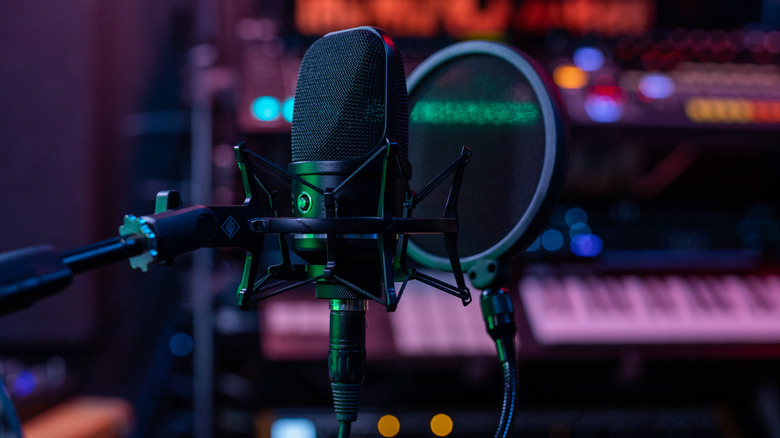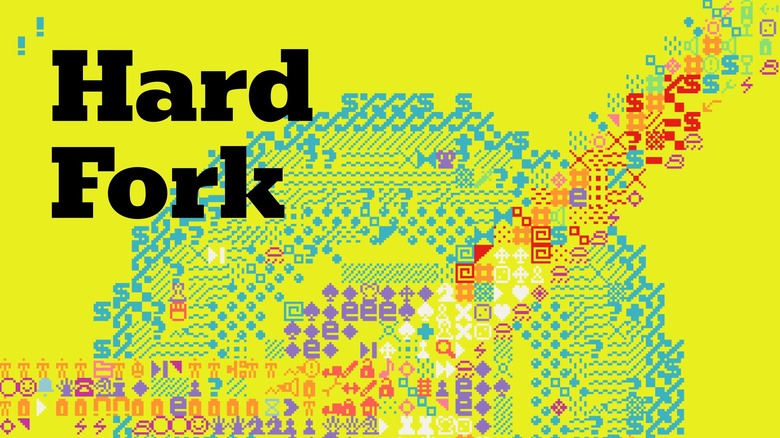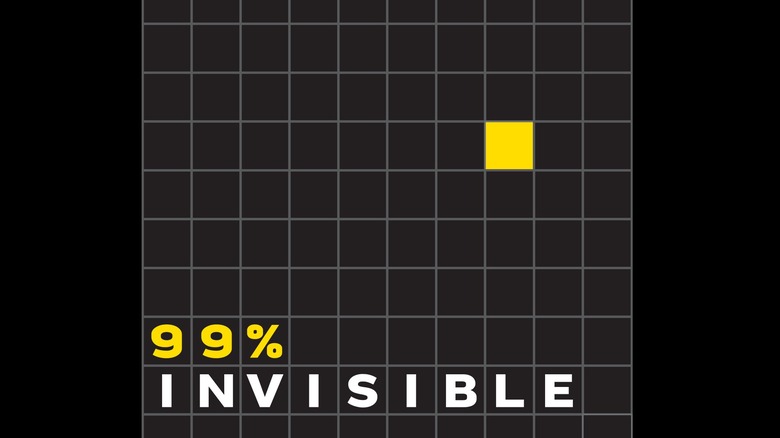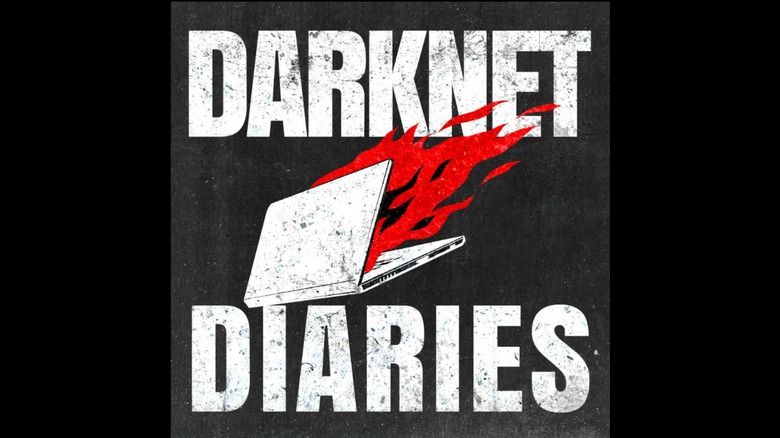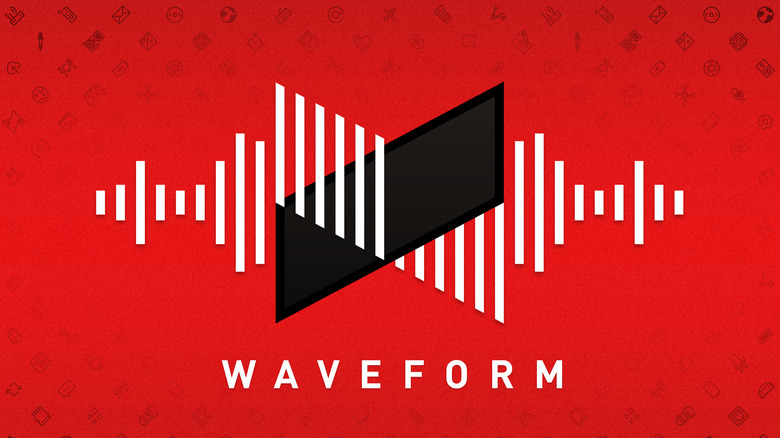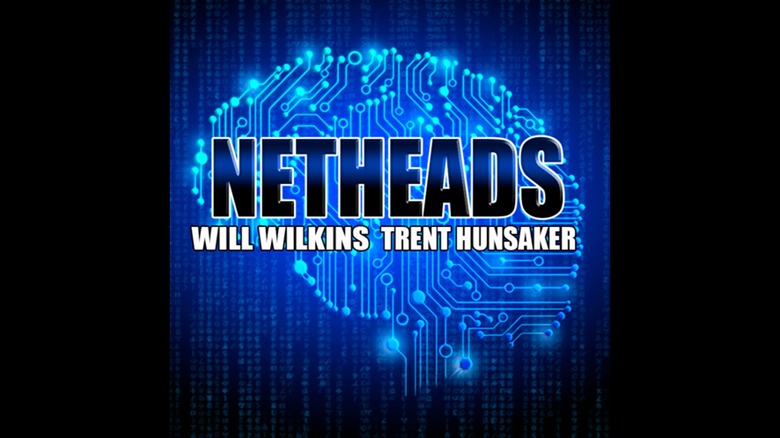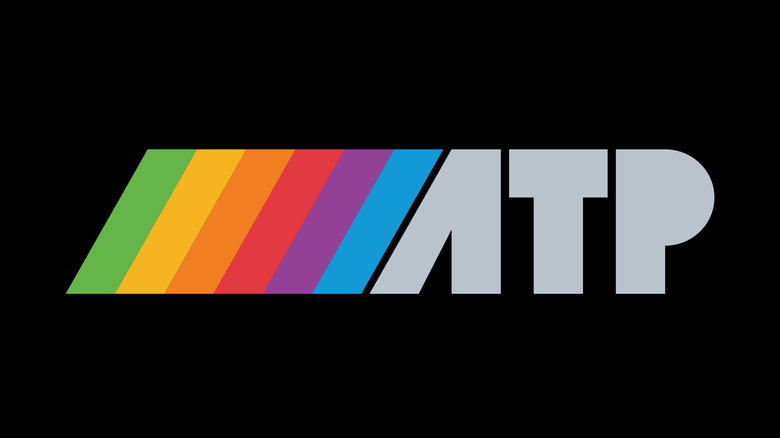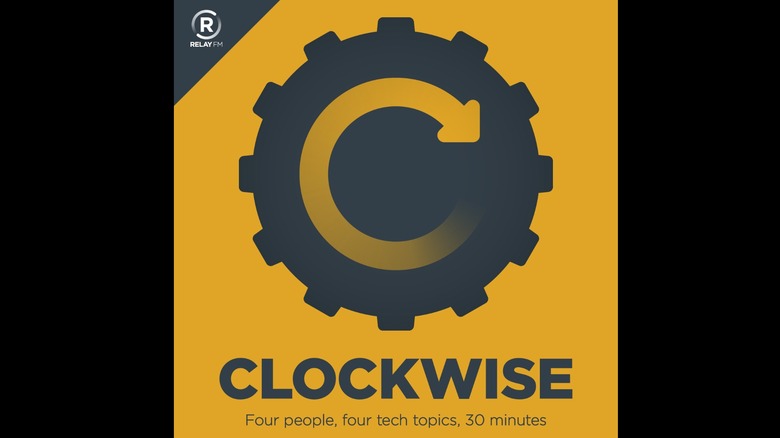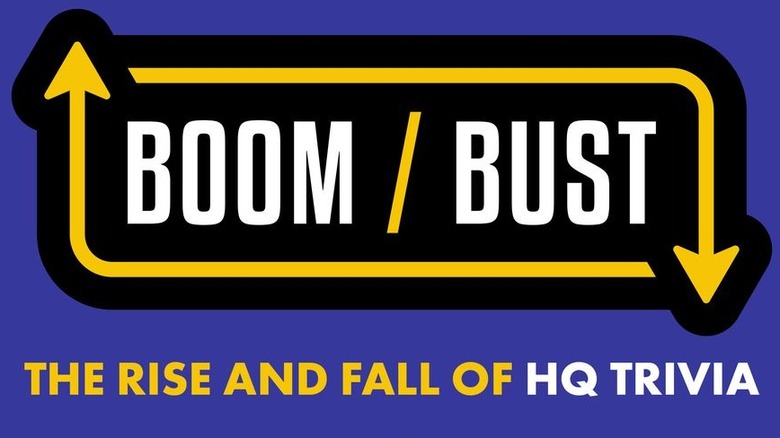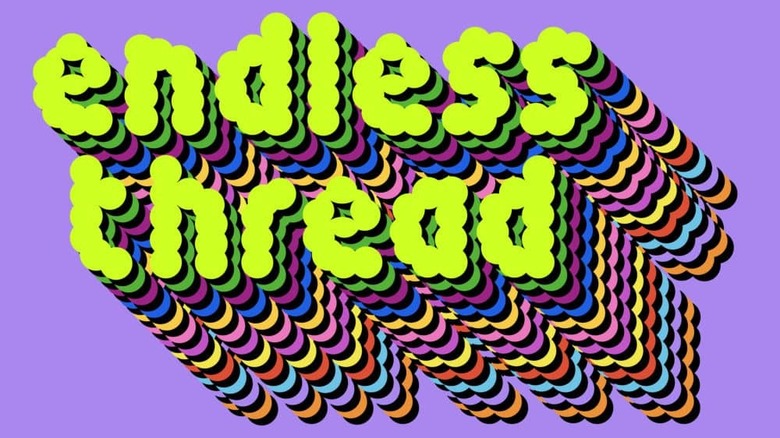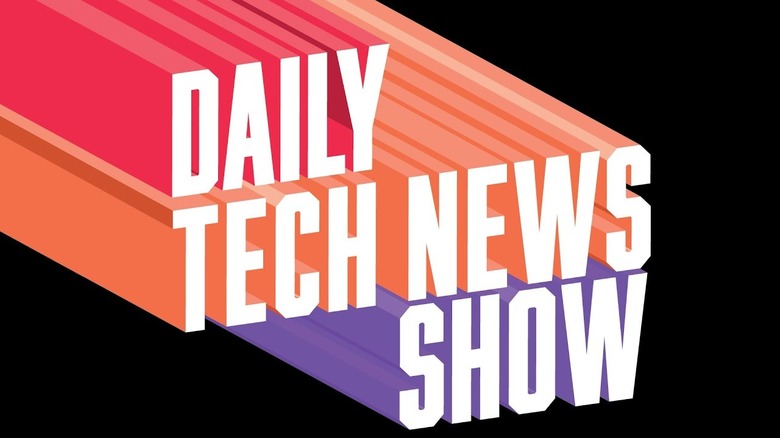10 Podcasts For Tech Enthusiasts To Listen To In 2024
If you're looking for tech news, you're in the right place. However, there is so much news and only so much time in the day to read it. To really pack the most knowledge about technological advancements and consumer gadgets into your head as possible, you might want to look into additional content streams, and audio is a great medium to consider.
Content like radio or podcasts has the benefit of being largely passive. You can turn something on during your commute or while washing the dishes and fill those otherwise silent moments. Podcasts are an increasingly popular way of getting information because they can be so specialized. Anyone with some basic recording equipment — even a phone will do — and an internet connection can create and publish a podcast. That one fact is both the biggest benefit and most enduring curse of podcasting.
Since anyone can make one, there's bound to be a few shows about anything you might be interested in, but you also have to sift through a seemingly endless sea of audio to find the stuff worth listening to. No matter your level of expertise, if you're looking for ways to keep up with the newest gadgets and the latest tech news, there's a podcast for you. These are some of our favorites.
Hard Fork
If you're looking for a good place to dip your toe into the world of tech podcasts, you could do worse than "Hard Fork." Hosted by The New York Times tech reporter Kevin Roose and Platformer's Casey Newton, "Hard Fork" is a weekly podcast exploring the ways tech and gadgets interface with everyday life.
The show began back in October of 2022 and episodes have come out every Friday. At the time of writing, there is a back catalog of 65 episodes covering everything from artificial intelligence (there have been a lot of A.I. stories lately) to social media, self-driving cars, and everything in between.
Roose and Newton bring significant expertise to the program along with a casual, conversational vibe. Episodes feel like chill conversations between two buddies just chatting about what's going on in the world of tech. Episodes also frequently feature guests as wide-ranging as tech CEOs such as Sam Altman and performers like comedian Jenny Slate. "Hard Fork" is a reliable show for keeping your finger on the pulse of tech and having fun while you're doing it.
99% Invisible
Created and hosted by Roman Mars, "99% Invisible" –- commonly shortened to "99pi" -– explores the usually unseen parts of the world. The aim of the show is to get listeners to think, even if only for an hour, about all of the effort and thought that goes into things we usually ignore. The show began as a four-minute spot on public radio more than a decade ago and has grown into one of the most consumed podcasts on the internet.
It is ostensibly a podcast about architecture, design, and all of the invisible work that goes into ordinary everyday products and objects. However, in more than a decade on the air, the show has grown to explore just about every corner of the world where invisible or ignored things exist. It's about the gap between what an expert sees and what a layperson sees, whether that's in design or anywhere else.
More than 500 episodes in, not all of them are exclusively focused on technology but nary an episode goes by that doesn't at least touch on an aspect of tech and its impact. Moreover, many of the technologies the show explores are ones you may have never thought about before, and that's by design.
Darknet Diaries
Hosted by Jack Rhysider, "Darknet Diaries" presents real-life stories of technology and the people who use it, often in secretive or sinister ways. As the name suggests, each episode digs into one of the darker aspects of technology and the internet.
The show began in September 2017 with a slightly inconsistent release schedule. Over the life of the series, episodes have usually been released every two weeks, but recently releases have moved to a monthly cadence with new episodes dropping on the first Tuesday of every month.
Episodes begin with a brief opening that introduces the topics, which have included cheating in online games, the manipulation of Apple Podcast rankings, data breaches, and even the sale of narcotics on the dark web. Information is presented in an investigative journalism format, combining interviews with relevant individuals and narration to spin a narrative. "Darknet Diaries" doesn't release as frequently as some of its competitors but when it does, you're sure to get an hour — give or take — of solid reporting and commentary on a part of the web not often seen.
Waveform
Marques Brownlee, otherwise known as MKBHD, is a popular tech YouTuber who has been making and uploading videos primarily about consumer gadgets for more than a decade. Today, he has approximately 18 million subscribers on YouTube and shows no signs of stopping.
By 2019, Brownlee had gathered more than 9 million YouTube subscribers to whom he announced a then-new podcast called "Waveform: The MKBHD Podcast." Like Brownlee's YouTube content, the podcast largely focuses on consumer gadgets, which means the two streams of content often go hand in hand. Brownlee told The Verge that he was making the podcast to give people a look behind the curtain at what it's like to run a YouTube channel and to perhaps even provide some "unfiltered takes."
Co-hosted by Andrew Manganelli and David Imel — the producer and writer/researcher for the MKBHD YouTube channel, respectively — the show has also featured a number of high-profile guests, including Meta's Mark Zuckerberg. Content is provided in the same welcoming, conversational tone that has made Brownlee's video content so popular. If you want a friendly guide through the tech terrain, "Waveform: The MKBHD Podcast" is a good place to start.
NetHeads
Filmmaker Kevin Smith is known for a lot of things -– he's made some pretty funny movies and built a successful career as the go-to guy on all things comic books –- but tech news isn't exactly one of them. Still, nestled toward the bottom of Smith's Smodcast Podcast Network, beneath the more predictable shows like Smith's own "Fatman Beyond" and "Hollywood Babble-On," there is a hidden tech gem in "NetHeads."
Hosted by Will Wilkins and Trent Hunsaker, "NetHeads" is a tech podcast that feels more like a conversation between two friends, which means it has a tendency to stray into the weeds a little bit. Wilkins and Hunsaker are liable to get sidetracked and spend some time talking about movies or their dogs, but that makes it a delight to listen to. "NetHeads" is notable for its real-time audience engagement. The show usually broadcasts live before going into the podcast feed and incorporates questions from live listeners in the livestream chat or using hashtags on X, the social network formerly known as Twitter.
You may not get all the news you were hoping for, but you're going to leave after an hour, give or take, feeling like you had a good time hanging out with your geeky friends. The posting schedule is haphazard and inconsistent of late, but the show has a back catalog of more than 300 episodes to keep you entertained.
Accidental Tech Podcast
The name of "Accidental Tech Podcast" refers to its origins. Host John Siracusa's first tech podcast, "Hypercritical," focused on Apple tech and ended after a couple of years. Later, Siracusa joined forces with co-hosts Marco Arment and Casey Liss for what was supposed to be an automotive podcast, as he explained to The Sydney Morning Herald. Fortunately for us, all three of them are huge dorks who couldn't stop themselves from talking about gadgets and tech, so the show metamorphosed into what it always should have been — an accidental tech podcast.
"Accidental Tech Podcast," often stylized as "ATP," has a slightly different tone to its peers, if only because of the degree of expertise. The hosts are all dyed-in-the-wool tech enthusiasts with a deep level of knowledge. Shows often have cold opens that jump straight into the nitty-gritty with little context.
It's not necessarily an entry-level show, but if you're pretty well-versed or you're keen to jump into the deeper end of the pool then "Accidental Tech Podcast" is for you.
Clockwise
"Clockwise" employs an interesting host mechanic which makes every episode feel familiar and fresh at the same time. Episodes are co-hosted by Dan Moren and Mikah Sargent, each of whom acts as one half of an unchanging foundation. They provide tonal and emotional continuity, but the other half of the panel is always fresh.
The two hosts are joined each episode by two guest hosts, and everyone brings their own topic to discuss. Guest hosts often come from other science or technology-focused programs on the Relay FM network, of which "Clockwise" is a part. This means that every week there are four hosts and four topics. Like a freshly delivered pizza, "Clockwise" promises to give you your tech news in 30 minutes or less.
The topics covered on "Clockwise" are too numerous to list. They cover four things every episode, post one episode every week, and have a back catalog stretching back roughly a decade. They've covered everything and all signs suggest they will keep doing it every week.
Boom/Bust HQ Trivia
A few years back, a hot new game hit smartphones in the form of "HQ Trivia." It was a weird technological chimera that might have been groundbreaking and ahead of its time or a massive miscalculation. History will tell.
A few times a day, players would get an alert that a game was about to start. Everyone would log on — all at the same time — and watch a live presentation from host Scott Rogowsky. Players were asked to answer a series of 12 multiple-choice questions, each more difficult than the last. Anyone who successfully answered all 12 questions split the prize pool, which was sometimes tens or hundreds of thousands of dollars. It felt kind of like the future had arrived by way of an interactive, real-time, online game show that anyone could play and win — then it all fell apart.
"Boom/Bust: HQ Trivia" chronicles the story of the HQ's rise to the peak of the digital mountain and its subsequent crash. It is hosted by Alyssa Bereznak and presented by the Ringer Podcast Network. The show was a limited series, consisting of just eight episodes telling a contained story through a combination of narration and interviews with players and the people who made HQ Trivia happen. While brief, the podcast provides a fascinating look at one of the most intriguing intersections of tech and pop culture of the last few years.
Endless Thread
There are plenty of shows out there covering the gadgets and gizmos coming out of the tech world, but fewer that cover the communities that have cropped up in digital spaces. Rather than chronicling the evolution of cell phones, wearables, and home computers, "Endless Thread" focuses on the people existing in technological landscapes.
One of the internet's major selling points is the connectivity it offers and hosts Ben Brock Johnson and Amory Sivertson put that sentiment to the test, digging into corners of the internet ecosystem you might not be aware of. The show launched in February of 2018 with an episode about how a Reddit community helped one person overcome an opioid addiction.
More recent episodes have examined how language patterns travel across communities on the internet, the apparent masculine obsession with the Roman Empire, and what it means to be "extremely online." Episodes are typically short, usually between 20 and 30 minutes, making "Endless Thread" a more approachable bite at the apple than some of the longer and more in-depth programs.
Daily Tech News Show
"Daily Tech News Show" is more or less what it sounds like. If you've ever watched your local nightly news, you have a pretty good idea of what "Daily Tech News Show" is going to offer, at least in terms of tone. The show is anchored by hosts Tom Merritt and Sarah Lane, with support from additional contributors, producers, and occasional guest hosts.
New episodes drop Monday through Friday, along with the occasional brief bonus episode for breaking news. Most shows last about 30 minutes and cover a wide variety of topics from niche content like the specs of a recently released computer chip to more general stories like updates from major consumer tech companies.
The daily release format is what makes DTNS so useful because you can get news in something pretty close to real-time. That said, the format also leaves something to be desired in terms of engagement. It feels like a tech-focused audio version of the nightly news and often sounds as though the host is reading from a teleprompter. Other parts of the show feel more conversational, if still somewhat artificial. You'll get your tech news but little in the way of heart.
